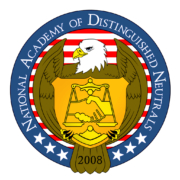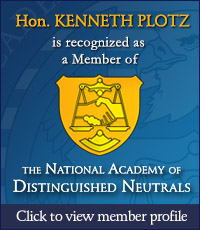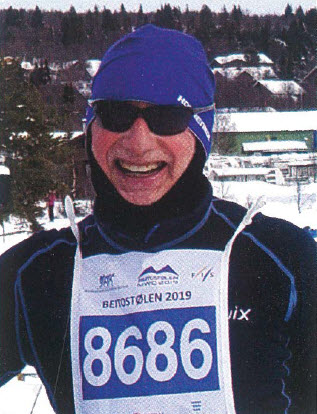This article originally appeared in Trial Talk February/March 2020 Volume 69 Issue 2 edition. Reproduced by permission. ©2020 Trial Talk. All rights reserved. Modified from its original publication in Trial Talk.
By Joe Epstein and Chad Atkins
Introduction
Colorado Judicial Department Statistics indicate that 99%of civil district and county court cases settle before a trial or final hearing.¹ Many cases settle at mediation and many more settle due to the forces created at mediation. For those cases that do not settle at mediation, United States Department of Justice studies conclude that mediation was a significant factor in resolving some or all significant issues in 71% of all United States Department of Litigation mediated cases nationwide.² Based upon our wide and deep experience in evaluating and mediating cases we offer questions for you to answer in enhancing your mediation practice.
This article is designed to help to encourage attorneys to design and time their mediations to have the greatest possible effect in their case management. Decisions made to use treating physicians as experts, engage independent causation/damage experts, engage personal injury finance companies or not are some of the keys to pre-mediation preparation.
What follows are some questions we have framed for your consideration for successful mediations.
- What is the role of creativity in mediation?
Mediation should be a creative process for case resolution. An example of creativity was a case involving a fixed wing aircraft/helicopter crash we recently mediated. The Subrogation Plaintiff did a marvelous recreation of the crash. They displayed it to us Co-Mediators at mediation. We called a joint session so it could be played to the Defendant/Cross Claimant. When an impasse developed, we persuaded the Intervenor/Helicopter pilot to bid against himself to get the personal injury case into a realistic settlement range. After both of these creative moves occurred, both cases settled.
Another example of creativity was displayed in a pre-litigation catastrophic injury case mediation involving a trucking accident. Plaintiff’s counsel had disclosed all available medical records and reports. Yet there was still a gap relating to the current status of Plaintiff’s medical and emotional status. A “meet and greet on steroids” was arranged and the Plaintiff and her sister were interviewed for 45 minutes in open session by the mediator. Given the new information and the manner in which it was conveyed the case rapidly moved to settlement.
- When should litigators alert the mediator about special issues?
All parties should alert the mediator to special issues when setting their case for mediation. Special issues include client control issues, difficulty with opposing counsel, coverage issues, lien issues, subrogation, indemnification, additional parties or non-parties to the case, any complication. Addressing these issues pre-mediation through calls with the mediator or an in-person meeting saves time at mediation. In some instances, a site visit or house call may also be necessary.
Pre-mediation meetings are especially useful in high valuation cases. They should always occur where the value exceeds one million dollars.
- When should you consider using co-mediators?
Co-mediation is a good idea when you have multi-level litigation. Co-mediators are better with multiple parties possessing differing interests, or where there are counter and cross claims. Co-mediators often possess different, complimentary skill sets. Co-mediators can more effectively manage multiple plaintiffs with inadequate coverage. Co-mediators are also useful where there are multiple insurers. Often, this leads to questions as to which policy is primary and the order of liability, or coverage. Additionally, co-mediation is useful where there are subrogation, indemnity and reservation of rights issues.
- What is “Data Dumping” and when is it good, when is it bad?
Data dumping occurs when a litigant discloses irrelevant material and late material. This most often occurs with the documents supporting the mediation statement and with late disclosures on the day of mediation itself.
Limited, relevant and focused attachments that clarify the position advocated are the key to effective mediation statements. Provide the mediator with needle—not the haystack. The needle is the point you want driven home. This helps the mediator appreciate the risks faced by both the plaintiff and defendant. Providing new information of the day of mediation is missed opportunity because the full impact of the disclosure cannot be appreciated and acted upon with sufficient time by opposing counselor decision makers. The mediator cannot be effective in the other room unless the risks are known, well developed and fully considered.
Data dumping is good in pre-litigation and in the early phase of litigation, when the Rule 26 dis closures are being made. Give the other side what they need to see the case the way you see the case. In pre-litigation, the adjuster needs the information to evaluate the risk with enough time to act, set reserves and value the case.
- When should you disclose your “good” evidence?
Disclose your best evidence early, before mediation. New information disclosed at mediation usually is lost opportunity. If disclosed at mediation no one can effectively evaluate the information for maximum impact on value. Good evidence creates risk of loss at trial. Evidence which creates risk is most effective when disclosed timely, giving the participants time appreciate the risk, act and reevaluate the case. Disclose good evidence with enough time that opposing counsel and decision makers can act with authority.
- When should the initial demand be made?
Demands should be made by Plaintiffs 30 days in advance of most mediations. This requires that there is a disclosure of relevant data and a demand made timely. Make the demand a risk factor in case evaluation for your opponent. Where the demand is made prior to mediation, let the Mediator know the status of negotiations. It is helpful to let the Mediator know your impression of the interests and issues that have prevented reaching agreement. A good axiom is the greater the demand, the greater the time required to evaluate, process, and act on it.
- What questions should I ask myself when drafting an effective mediation statement?
The four key questions are: 1) who are my witnesses and what will they testify to at trial; 2) what are the key exhibits and what do they prove; 3) what is the credibility factor matchup between the various plain tiff and defendant witnesses; and 4) what is the negotiation history between the participants? Each of these questions focuses your preparation toward effective communication of your client’s position to your intended audience in a concise and persuasive manner. Answering and addressing these questions is the core of your effective mediation statement.
- What should be included in the mediation statement?
Less is not necessarily more, but concise, focused mediation statements that communicate better are more. Bigger cases have better, more concise mediation statements. This is likely because concise, focused statements are harder to write, and many litigants spend more time writing the mediation statement in bigger cases.
Most mediation statements are a chronological statement of medical treatment, and many documents that are related to the case, but not relevant to any issue in dispute. If a matter is not in dispute at mediation, spending much time on it is wasted time.
- What are the key questions that you should ask yourself when preparing to mediate?
What is the comparative strength between the parties of causation? It may be helpful to express the answer as a percentage. What is the comparative strength and credibility of the key witnesses and the evidence that each of these witnesses will develop for the litigator? Often, this is a subjective analysis. Do not let that stop you from conducting the analysis and answering the question. What conclusion does the application of common sense point the finder of fact towards? Design a model jury pool that best represents the actual jury pool. Answer these three questions for any disputed issues for yourself, your opponent and for the mediator.
- When should the case be set for mediation?
Settings for mediation conferences should be done at least 45 days in advance of the mediation. For maximum effectiveness, prepare the mediation statement and conduct mediation after expert disclosures but before expert depositions. Conducting mediation far enough in advance of trial saves transactional costs.
Consider mediation pre-litigation. This works better if counsel can exchange information freely, and in this instance more is better. Give the other side the information that they need to evaluate the case as you evaluate it. Expect resistance but explain that the mediation will flow faster and have better chance of settling if there are no surprises.
- Should you share a version of your mediation statement with opposing counsel?
Sharing a version of your mediation statement is a preferred practice. Sharing a version of your mediation statement avoids surprise and maximizes impact. Sharing a version of your mediation statement avoids “unrealistic expectations” or overly favorable evaluation on all sides. Sharing gives the opposing decision maker the information necessary to effectively evaluate and settle the case.
- Should you obtain a draft release in advance of mediation?
Defense should provide a draft release ten days prior to mediation. Plaintiffs should make proposed changes in the Defendant’s release three days before the mediation This enables the mediator to anticipate any issues and also to speed finalization of the settlement. Any issues with the final documents are apparent, open, clearly negotiated. More importantly, this allows focus on the terms that really matter, and avoids terms which are added without negotiation. Having the documents ahead of time avoids this needless and time-consuming impasse.
- How can you create risk before and at mediation?
Evaluating and managing risk is the key to resolving legal disputes. As a result, creating risk before the mediation is effective. Taking depositions, visiting sites, reviewing reports, gathering evidence, working with experts all create risk. Good, well timed motions help create risk. Expert Reports help create risk. Outlining and evaluating all of the damage categories in detail help create risk. Concisely state in the mediation statement why your evidence creates risk of an adverse result for the other side at trial. State why the other side has a weaker position. Support these positions with relevant documents. Tell the mediator what the jury will see at trial that will make them find in your favor.
- What do you want to get from mediation?
The point of mediation is to settle cases efficiently and cost effectively for maximum value for your side. At mediation, the goal is to close the best deal that you can. Mediation is the best opportunity to craft a certain and final settlement by the parties who know the case best and not leave it to the uncertain ruling of six jurors and an alternate.
Be patient at mediation and let the process work. Rome was not built in a day, and the Roman Empire did not fall overnight. Prepare your client to be patient well before mediation. Impatient clients reduce risk for the other side and are a liability for your search for settlement. Leaving before finding out your opponent’s best number demonstrates a lack of patience and renders the process ineffective.
Conclusion
As Counsel sets up the case file, there is a folder for opening and closing statements. Similarly, there should be a file for mediation. In the mediation file, answer the questions: what is the status of liability, causation and damages? Which party has causation, credibility and common sense on their side? Who are the key trial witnesses and what will they say? What are the key exhibits, and what do these prove? Answer these questions and help the mediator and your opponent understand the case as you do, to find the right settlement value.
Joe Epstein has 25 years as a mediator with over 4000 mediations. He is a four-time selection by Colorado Law Week as Colorado’s “Barrister’s Best Mediator.” He has served as a Vice-President on the International Academy of Mediators. He is a member of the National Academy of Distinguished Neutrals. He is a panelist with AB Conflict Resolution Services. His mediation focus is on complex high value cases. Joe may be reached at 303-359-1459 or joe@crs-adr.com.
Chad Atkins has 25 years as an attorney with more than 100 trials. Chad served as a plaintiff’s and defense attorney for multiple Fortune 100 global insurance carriers and as named Managing Attorney for Colorado for Liberty Mutual/Safeco. This gives Chad a broad perspective for mediation. Chad understands case evaluation from the viewpoint of the litigants, claims adjuster and claims supervisor, with a focus on settlement. Chad can be reached at 303-667-0528 chad@crs-adr.com.
Endnotes:
1 Mediation Guide for Colorado Courts, Colo. Sup. Ct., Draft 4.1 (Oct. 5, 2018).
2 Use and Benefits of ADR by the Department of Justice, Fiscal Year 2017; Overview, U.S. Dept. of Justice (2018).
Colorado Trial Lawyers Association Trial Talk February/March 2020






